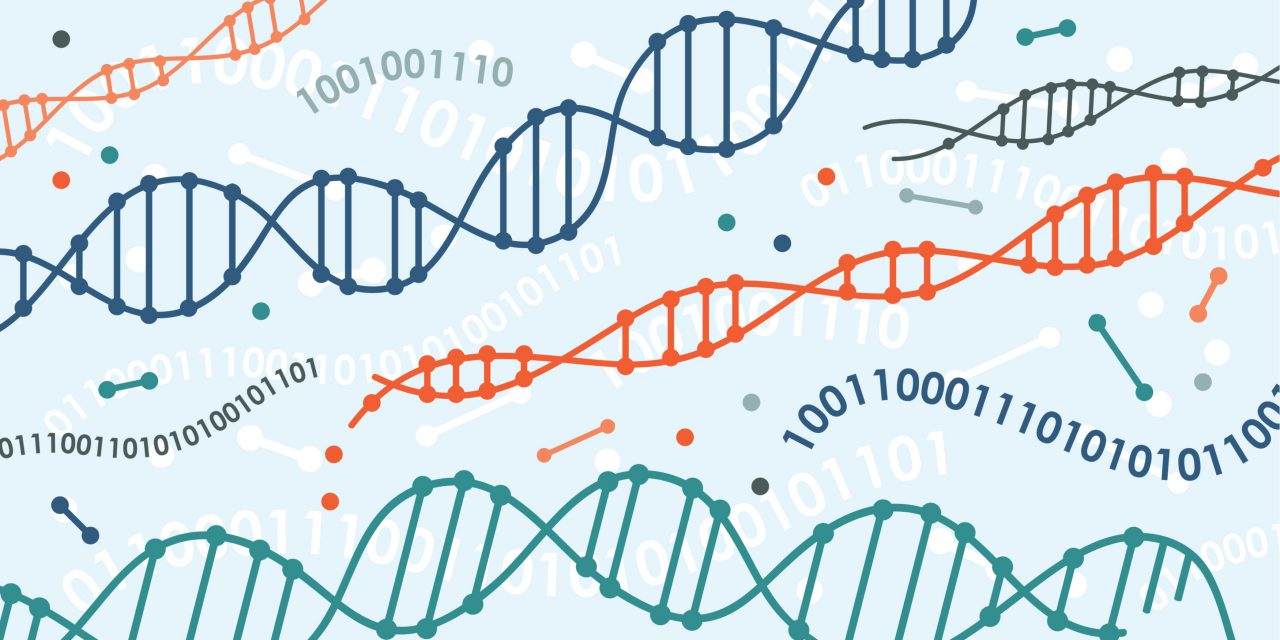
DNA as Storage Device
Microsoft estimates that a shoebox of DNA could house the same amount of information that 100 giant data centers hold today.3 Read this blog post to find out how DNA may be the storage server of the future.
To view the full article please register below:
DNA as Storage Device
No. 7 in the series,
DNA: The Ultimate Information Storage Device
Every day the world creates 2.5 quintillion bytes of data—enough to fill 10 million blu-ray discs, which if stacked on top of one another would measure the height of four Eiffel Towers.1 The tsunami of information is overwhelming current storage technologies. The server farm is not the future, but DNA just may be.
Microsoft, in conjunction with the University of Washington, announced test results last year that placed 200 megabytes of data (War and Peace, and 99 other classics) into DNA, reflecting a remarkable advancement in the ability to store information on DNA.
It shouldn’t come as a surprise that DNA may become the future medium of data storage—after all, it’s had billions of years to evolve into the efficient data warehouse it is today, storing all the complex instructions for how living things are created and operate.
At the risk of bringing up bad memories of high school biology, DNA is comprised of nucleotides—adenine, thymine, cytosine and guanine; it is the sequencing of these that can be used to encode data, much like the “0” and “1” do today.
The technology is still in its early stages, with the process being both expensive and difficult. However, there is significant optimism that the costs of tools for creating and reading out DNA will plunge. Consider the human genome-mapping project. The cost of mapping the human gene was about $10 million in 2007; today it costs only about $1,000.2
Microsoft estimates that a shoebox of DNA could house the same amount of information that 100 giant data centers hold today.3 Not only can DNA store an incredible amount of data, but it can last far longer than the few-decade lifespan of our densest storage option today, magnetic tape. In a more recent development, researchers at Columbia University and the New York Genome Center have claimed even greater results than those achieved by Microsoft using a retrieval method it dubbed the DNA Fountain, which can store and perfectly retrieve 215 petabytes of data on a single gram of DNA (one petabyte equals more than 13 years’ worth of high-definition video).4 This method is currently too expensive for commercial application, but it shows that progress continues every day.
DNA storage is not likely to initially manifest itself in DNA hard drives on personal computers, but may see its first use in online archiving services, such as Amazon Glacier and Microsoft’s Exchange Online Archiving, which are data storage solutions for data that is accessed infrequently, or where immediate retrieval is not necessary.
Innovation is a vital component to an evolving world. What the future holds, one can only guess.
- http://www.vcloudnews.com/every-day-big-data-statistics-2-5-quintillion-bytes-of-data-created-daily/
- https://www.technologyreview.com/s/601851/microsoft-reports-a-big-leap-forward-for-dna-data-storage/
- https://www.technologyreview.com/s/601851/microsoft-reports-a-big-leap-forward-for-dna-data-storage/
- http://www.sciencealert.com/scientists-have-stored-a-movie-a-computer-os-and-an-amazon-gift-card-in-a-single-speck-of-dna
See referenced disclosure (2) at https://blog-dev.americanportfolios.com/disclosures/
Want to learn more about what our futures may hold? Check out other blogs in “The Future Series“.
THERE MAY BE A FUTURE FOR CARBON AFTER ALL
TECHNOLOGY BREAKTHROUGHS—THE FUTURE OF












